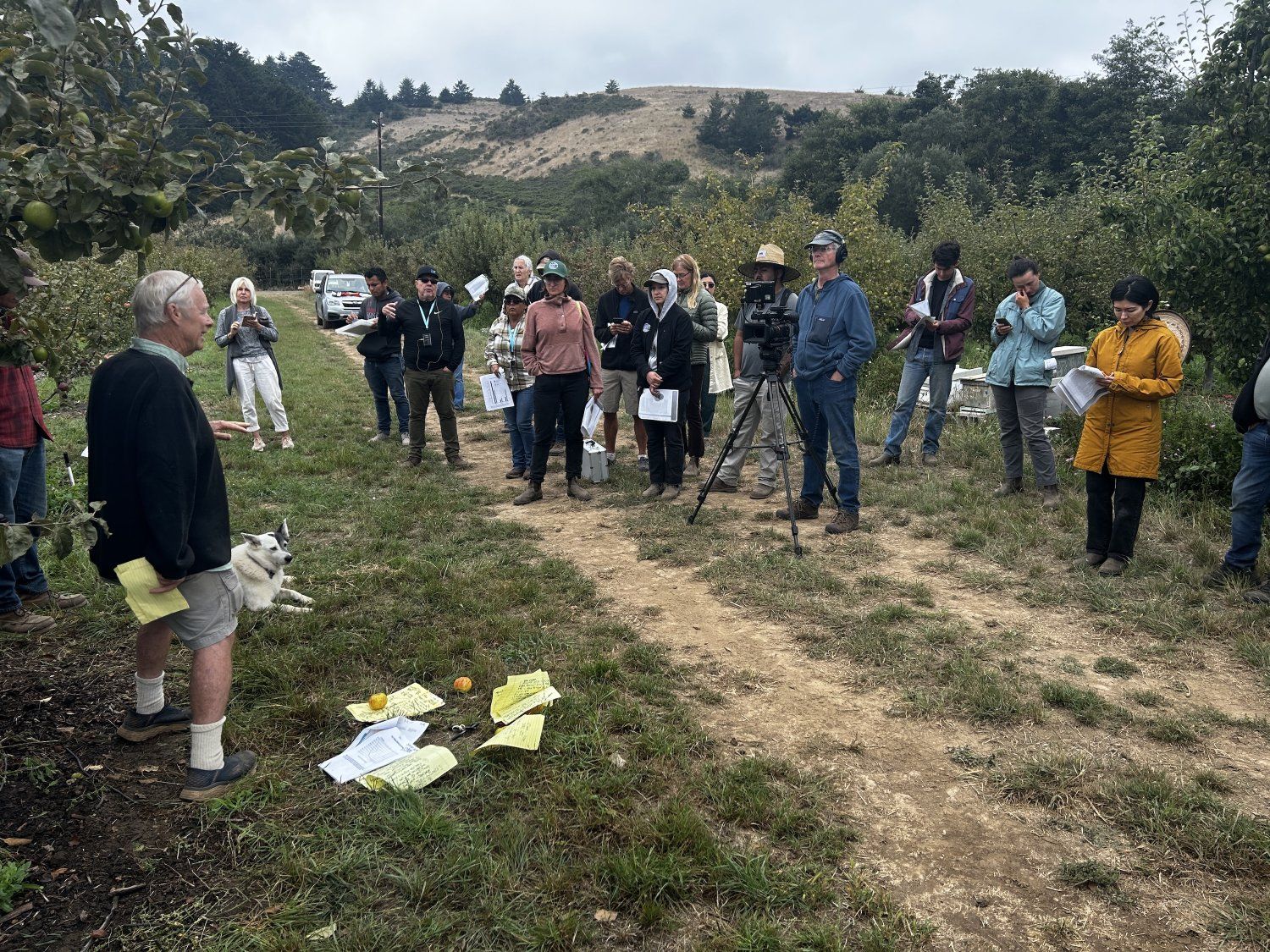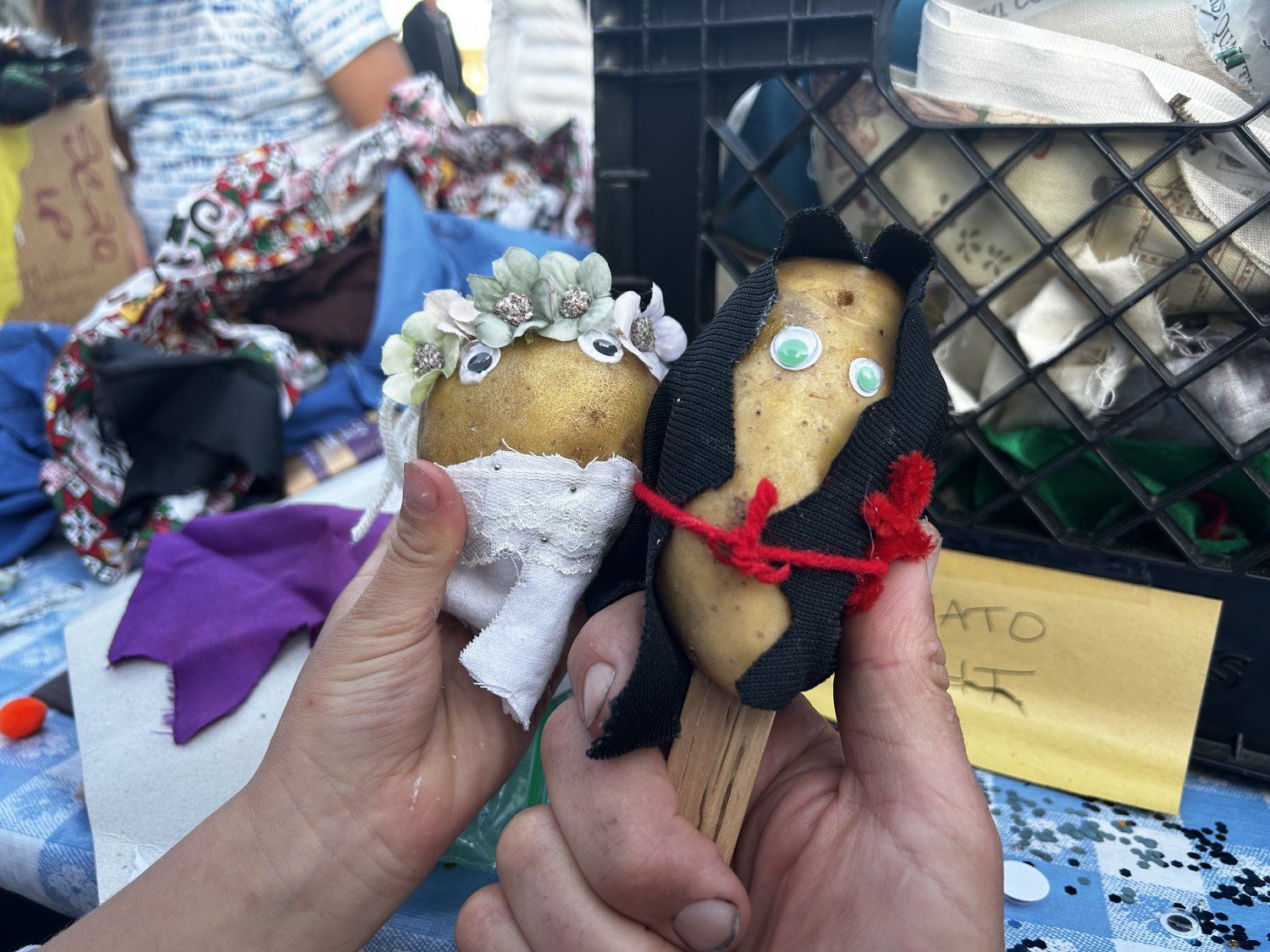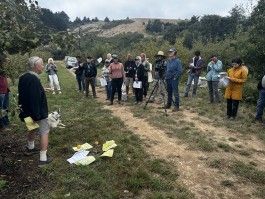Pictured Above- UCSC Center for Agroecology's own Orin Martin holds forth in our orchard on the key elements in planning your own orchard. It was a pleasure and privilege to get to spend time with him as he has been one of our treasured mentors for many years. The workshop was filmed and will be edited into a video that will eventually be available online so you too can enjoy Orin's verbose prose that teach as well as entertain.
PLEASE RETURN YOUR MESH BAGS- WE NEED THEM IN ORDER TO AVOID USING DISPOSABLE PACKAGING!
Product Updates: Enjoy those oh so sweet dry farmed tomatoes. It's looking like our season this year may be short. Sadly we're seeing a myriad of diseases and although we definitely have a couple more weeks of fruit that should be harvestable, the disease pressure is high. We are seeing Late Blight, Black Mold, and now a new yet unidentified ailment that is affecting young green fruit on our last planting. The flooding and almost double annual rainfall this past Winter has thrown this growing season off in so many ways. From intense disease pressure and changes in the patterns of pests, to nutrient and fertility issues, this year has been one of our most challenged growing seasons. Despite this, some crops have never done better. Peppers and basil this season are beautiful, plentiful, delicious, and disease free (thus far). It's a good reminder of why we have chosen the path of diversity. Luckily (except it's not luck at all) we grow many different crops so that even if some fail, we aren't completely dependent on them. Just as the natural world is a community and relies on diversity for resilience, by mimicking that in our human engineered way, we also are more resilient.


Tomatoes, sliced into a bowl. Pour in a generous amount of vinegar (I pour about half the volume of tomatoes). Add a few crushed cloves of garlic. about half as much olive oil as vinegar. A bit of Pepper. Dice up fresh basil, oregano, parsley, or Mint- or a mix of a couple herbs. Salt and pepper to taste. I find it tastes even better on day 2.




